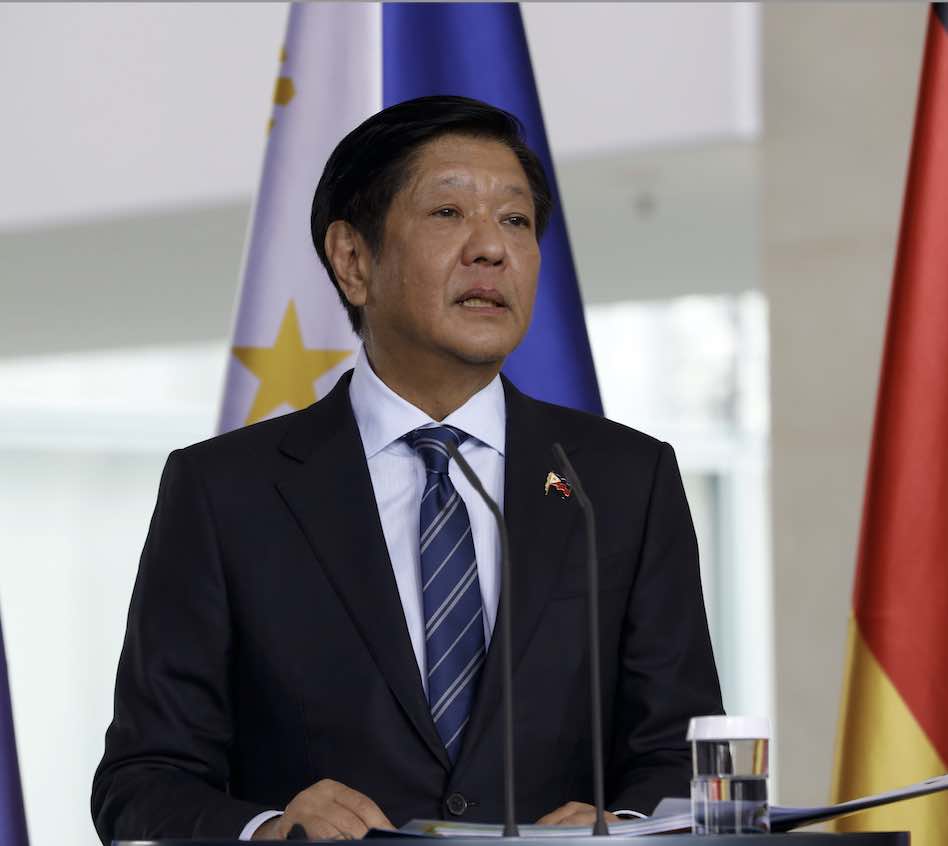Headline: Southeast Asia Divided: Trump vs. Harris – Economic Implications Loom
Southeast Asia is poised for a seismic shift in international relations as discussions heat up regarding the potential return of Donald Trump to the U.S. presidency in 2024. Analysts are sharply divided on whether Trump or current Vice President Kamala Harris would be the better choice for the region’s economic stability. With nations closely monitoring these developments, the debate is not just political; it carries significant economic implications that could reshape trade and investment in the coming years.
The Players: Who Are the Key Figures?
In the spotlight are two contrasting political figures: Donald Trump, the former President known for his brash and transactional approach, and Kamala Harris, a potential candidate with a more diplomatic outlook. Their differing policies could greatly influence U.S. relations with Southeast Asian countries, particularly Indonesia, Thailand, and Vietnam.
Current Political Climate: What’s Happening?
As the U.S. gears up for the presidential election in November 2024, political analysts are gearing up, too, dissecting the potential repercussions of each candidate’s policies on Southeast Asia. A recent analysis published in the Washington Times suggests that some businesses in the region view Trump’s candidacy as a potential "upside," assuming his administration might push forward deregulated trade agreements that could benefit local industries.
Conversely, experts like Andrew Hu, a noted economist, claim in an article with Jakarta Globe that “Harris represents a safer choice for Indonesia’s economy,” advocating for a more stable approach to trade that could foster long-term partnerships.
The Stakes: Why Are Southeast Asian Nations Paying Attention?
With economies in Southeast Asia heavily reliant on trade—about 57% of Southeast Asia’s GDP, according to the World Bank—both candidates’ policies will directly impact local markets. Trump’s go-it-alone style may offer quick interim benefits for some sectors, but Harris’ structured approach signals more sustainable growth, especially for industries anchored in technology and innovation.
Many Southeast Asian countries are placing their bets on the Democratic candidate to maintain a stable trade environment, which could lead to greater foreign investment. "Stability is key," says Dr. Rosa Tan, a political science expert at the University of Singapore. "Nations like Indonesia are looking for long-term relationships, and Harris could provide that."
Economic Policies Under Review: How Will They Influence the Region?
Donald Trump: A Transactional Approach
- Lowering tariffs: Key to maintaining competitiveness for Southeast Asian exports.
- Deregulation: Incentives for businesses could attract U.S. investments in sectors like agriculture and textiles.
While these policies may appeal to immediate economic needs, the volatility associated with Trump’s former presidency could intimidate investors wary of abrupt policy shifts.
Kamala Harris: A Collaborative Stance
- Strengthening multilateral ties: With initiatives aiming to stabilize trade agreements.
- Investing in infrastructure: Focus on digital infrastructure that benefits emerging economies in the region.
Harris’ policies are seen as more predictable and reliable, giving Southeast Asian governments the confidence to engage in deeper trade relations.
The Regional Perspective: Indications from Southeast Asia
From Jakarta to Bangkok, reactions are mixed. Indonesian Ambassador to the U.S., Rosan Perkasa Roeslani, mentioned at a recent economic summit, “Collaboration and communication will play a critical role, regardless of who wins the election. Our priority is to ensure sustainable growth for our people.”
In Thailand, the mood is similarly cautious. Experts there also outline that while Trump’s policies may derive short-term benefits for some sectors, stability and predictability under Harris’s leadership could spark larger inflows of foreign investment in renewable energy and high-tech industries.
Public Sentiment: How the People Are Responding
In focus groups across Singapore and Malaysia, citizens express wariness but also hope. Many view the U.S. as a vital partner in economic development, and both candidates bring different sets of advantages. Here are some perspectives shared during recent town hall meetings:
- “We need trade agreements that work for us,” said Maria Chen, a small business owner in Singapore. “Which candidate will respect that?”
- “This election matters to everyone; our livelihoods depend on it,” echoed Faisal Rahman, an educator in Kuala Lumpur.
Understanding the Impact: What Lies Ahead?
As 2024 approaches, businesses and governments in Southeast Asia must navigate this complex geopolitical landscape. The choice between Trump and Harris will have ripple effects on trade, investment, and economic stability across the region.
Companies are advised to prepare for both eventualities, creating adaptable business strategies that could pivot based on the election outcome. Furthermore, any significant shifts in U.S. policy under either administration will accentuate existing challenges, including climate change and digital transformation, that Southeast Asian nations face.
Engaging the Debate: What Are Your Thoughts?
The potential impacts of the upcoming U.S. presidential election on Southeast Asia cannot be overstated. As both Trump and Harris position themselves for a chance at the White House, stakeholders in the region are watching closely.
What are your views on which candidate would better support Southeast Asia’s economic growth? We encourage you to join the conversation by leaving your comments below or sharing this article with your network.
This article aims to stimulate informed discussions around the regional effects of U.S. elections, focusing on the economic future of Southeast Asia. For more insights into international relations and economic policies, visit our related articles. For external insights, refer to authoritative sources like the World Bank and the U.S. State Department.

